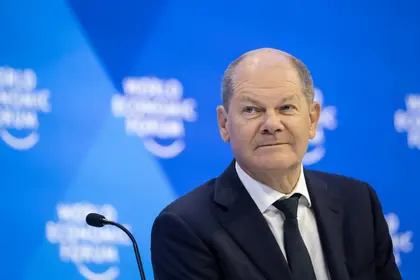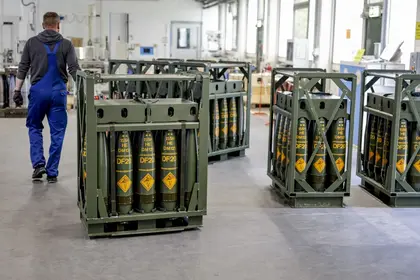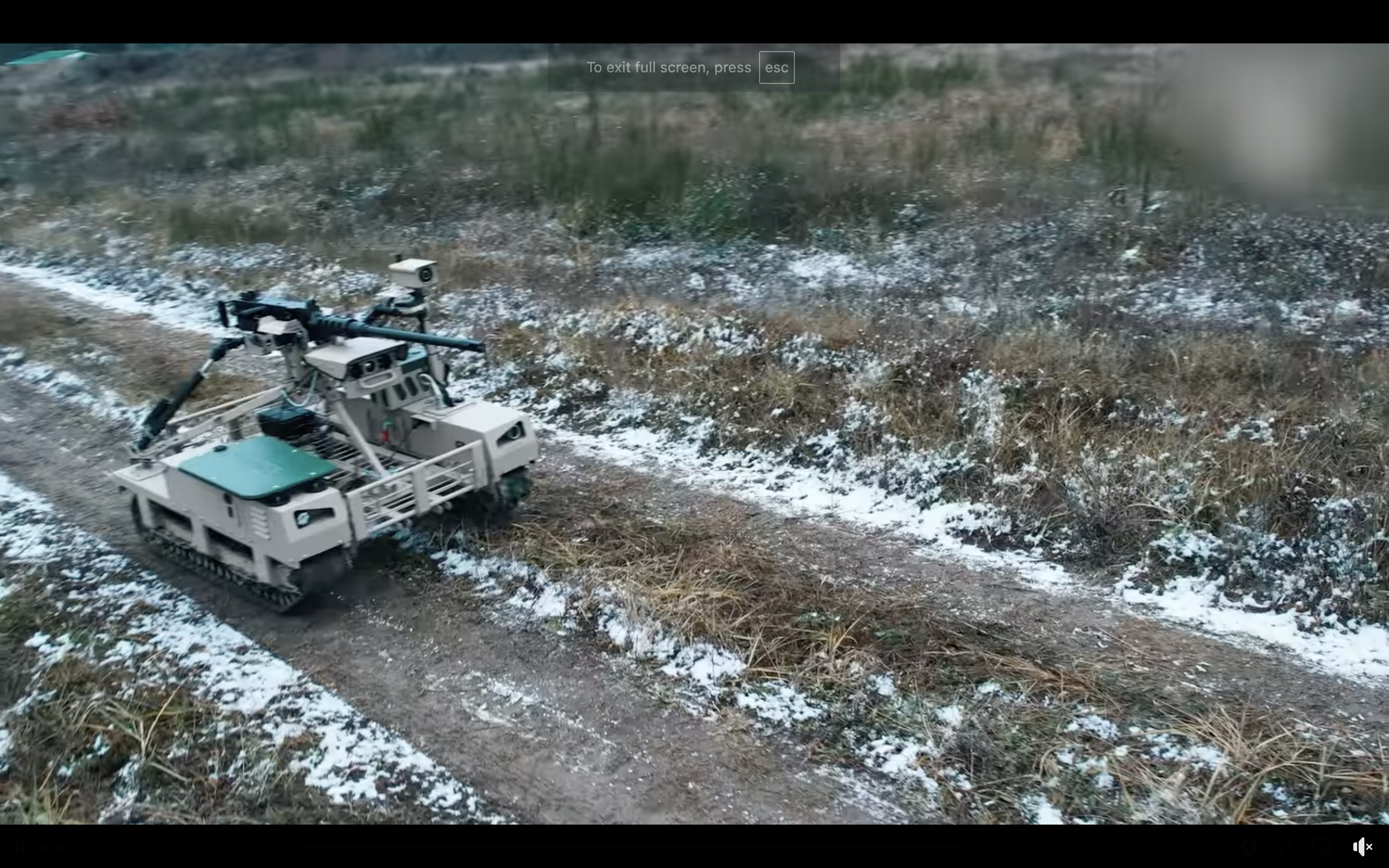German Chancellor Olaf Scholz's resistance to sending Leopard 2 tanks to Ukraine has freed up many in Germany with deep reservations about the direction of the West’s strategy and policy, to voice their frustrations, fears and, for many, an unwillingness to join in a Russian-Ukraine war, as opposed to containing it.
These are not think-tankers in Berlin, or the German liberal press – who are generally appalled at Scholz’ stonewalling, as are some members of the Bundestag, mainly from the opposition CDU, but also some from the Greens and liberal Free Democrat parties that partner with Scholz’ SPD in the governing coalition.
JOIN US ON TELEGRAM
Follow our coverage of the war on the @Kyivpost_official.
However, Scholz’ policy has broad support. A poll last week found some 43% of the public do not want to send Leopards, with 11% undecided. [Tagesschau ref.].
Among the business class, it is clear his policy finds support not only from long-time pro-Russian elements, but also many who have expressed deep anger at Merkel, Scholz and other politicians who championed over-dependence on Russian energy, rendering the country vulnerable to Putin’s blackmail.
Soo too, in political and ministerial elites, Scholz’ withholding of Leopards resonates with broad sections of not only his own center-left SPD, and both the overtly Russian friendly far-left and far-right parties, but significant sections of all others, for a variety of reasons, whether Greens, Liberals or center-right CDU/CSU.

Yermak: Ukraine Not Yet Ready For Peace Talks – Preconditions Missing
Even among elites with sympathy for Ukraine, many insist that the U.S. also bears much responsibility for this conflict and quickly point to a problematic history of U.S. wars in the Middle East.
For whatever reasons, these groups viscerally resonate with Scholz’s concern that the Biden administration’s demand for NATO allies to send heavy battle tanks is an “escalation” that risks a wider war and closes the possibility of a negotiating process anytime soon. They will remind that NATO escalation is something Biden himself has always said needs to be avoided.
Be that as it may, the Biden administration - and most of NATO - have recently concluded that NATO indeed now needs to escalate. This is driven by an assessment that Putin can and will fight a long war if his forces are not soon hit very hard. Not only would the war of attrition Moscow is adopting to cause long misery for Ukraine, it would also heavily burden the economies and energy security of both Western allies’ and developing states.
What is currently underway, as a Russian second front in support of its war inside Ukraine, is not a normal larger “cold war” aimed at western allies, but a costly, high stakes conflict featuring Russian weaponization of energy and other vital commodities answered by western sanctions, huge state subsidies to affected businesses and citizens, complex interventions in markets and other countermeasures clearly fraught with risks.
The Russian aim on this second front is to inflict burdens that gradually accumulate during a long war of attrition within Ukraine, burdens that Moscow hopes will set EU states against one another, and so too, within these states, create hardships that boost especially far-right populist forces, all-in-all undermining Western military and financial support for Ukraine.
Put simply, the USA leadership apparently feels that, to undermine this Putin second-front strategy which depends on a prolonged war, even if it be a costly “quagmire”, require heavy weapons such as Leopards – a sharp escalation – enabling Ukraine’s armed forces to deliver stinging defeats to Russian forces.
This escalation is the new U.S. strategy now embraced by most NATO allies. I agree with this strategy. If I indeed understand this properly, it flows from sober assessments.
But here in Germany as well as in much of Europe, the populations have not been prepared for these new war aims by their leaders.
It’s not clear how long ago the Biden Administration arrived at this analysis and strategic shift. In any case, Biden et al has won over its NATO partners, but this will clearly require Germany too.
From well before 24 February 2022, the Biden administration’s constant preoccupation has been how to keep the coalition united. One American “unilateral” misstep and not only many Germans but many other Europeans will be reminded how Bush and the neocons dragged “old Europe” into Iraq. People tend to forget that Bush was actually just about to win formal UN authorization; but instead, he and the UK’s Blair, raced to invade Iraq without Europe and without UN endorsement because unilateral action was “simpler.” And besides, who needed “old Europe” and UN bureaucratic constraints anyway?
Then the war turned out not to be so simple; it became a costly blunder, deeply affecting the entire Western alliance and Europe’s energy security.
In stark contrast, Biden and his administration have handled this coalition building exceptionally well, providing reliable and deliberate assessments, and engage in respectful consensus building – a Biden hallmark from his long Senate career and Foreign Affairs Committee experience.
Nevertheless, Scholz insists he will not be, in his view, Biden’s front man on sending heavy tanks and escalating this conflict. He refuses to be the Americans’ “viceroy” in Europe for an escalation that he and many others in Germany - and elsewhere in Europe - see as either a pernicious US-driven adventure or, (among the merely naive and understandably frightened) as a risky escalation.
Scholz’s de facto constituency across Germany and elsewhere shares his fears that this can go very badly. They feel that if the war is now becoming a “quagmire” – a battle where neither side can gain – then that this is actually a fortuitous development, as this means each side might abandon ideas of any victory and a negotiated end and compromises should be possible after some months.
Scholz is de facto claiming political leadership of this coalescing and self-consciously pro-containment and pro-negotiations, or perhaps, if needs be, a “frozen conflict” camp.
So, he insists Biden send USA heavy tanks first. That way, Biden will have at least taken political responsibility, and clearly not Scholz.
The cogent arguments of the U.S. administration and Pentagon regarding why it would be a logistics fiasco to send Abrams tanks to Ukraine are, of course, well understood in Berlin. But these points are irrelevant, what Scholz is primarily looking for political cover to avoid a backlash if things go badly and the war spills over somehow. At best, he may “lead from behind” once again as he Merkel attempted to do to finish Nord Stream 2 pipeline in the face of fierce opposition from both DC and most EU allies.
Scholz is the anthesis of a Churchillian leader who awakens the masses of ordinary citizens and drags unwilling elites to see the exigencies of the situation, and ascend collectively to their “finest hour.”
No, Scholz is a Chamberlainian to the core.
What is most unfortunate is that there is simply no German Churchill waiting in the wings. Virtually the entire political class and vast sections of business elites banked on Russian reasonableness toward Germany and the EU generally whatever conflicts may come in Ukraine, Georgia, Belarus and elsewhere. This was epitomized in the years-long Nord Stream 1 & 2 confrontations – and now again, in rejecting German Leopard 2 tanks for any Ukrainian counter-offensive.
The political crisis festering here in Berlin, and thereby in the transatlantic alliance supporting Ukraine, is that although there is growing impatience among many Germans with the strategic postures epitomized by Merkel and Scholz, there is simply no opposition party or significant opposition faction that presents an organized alternative capable of replacing the old leaders who engineered the earlier energy partnership with Russia, and who avoided seriously ostracizing Russia for its 2014 annexations and war.
In one way or another all major parties were deeply complicit in this geostrategy not to mention the extreme left and right parties. And as the support for Scholz stalling on Leopards now shows, many elites still embrace this posture.
So, the Chamberlainians must continue in power, responsible for Berlin’s role in the national and European resistance to Putinism. They are supremely ill suited. There is still no real “Zeitwende” underway in Germany, contrary to what Scholz claimed in a recent Foreign Affairs essay. Instead, by blocking Leopards to Ukraine, Scholz is positioning himself as the leader of a coalescing trend that sees a war stalemate, even a quagmire, as an opportunity for a negotiated settlement with Putinism.
Moscow is, of course, well aware.
You can also highlight the text and press Ctrl + Enter






